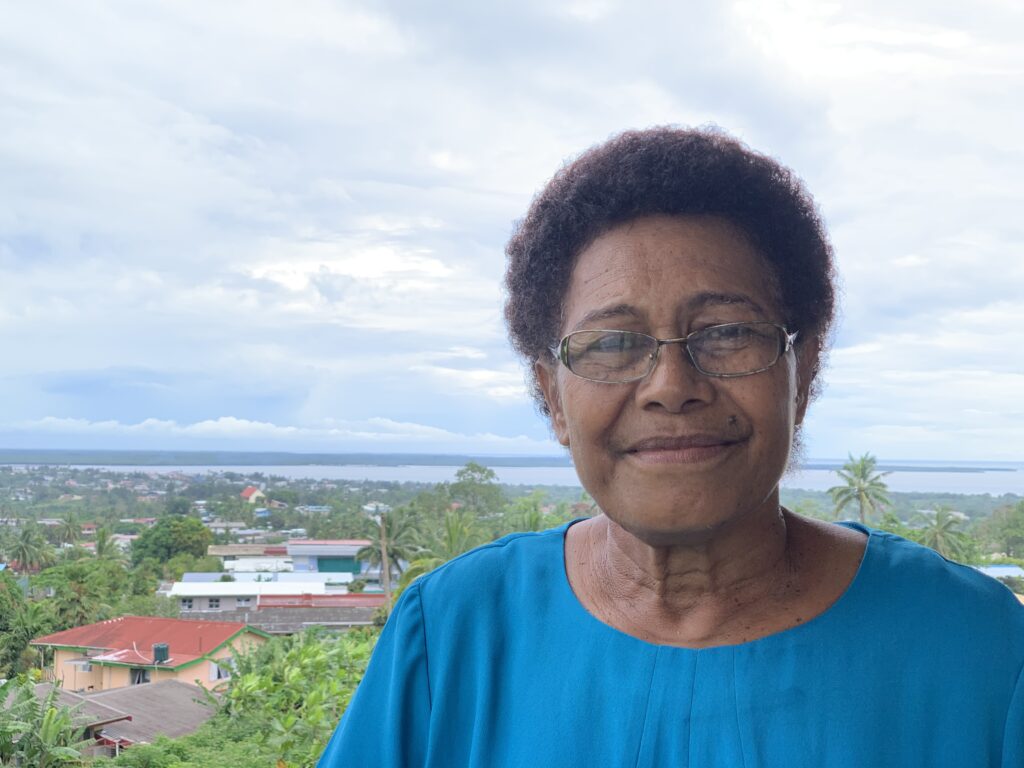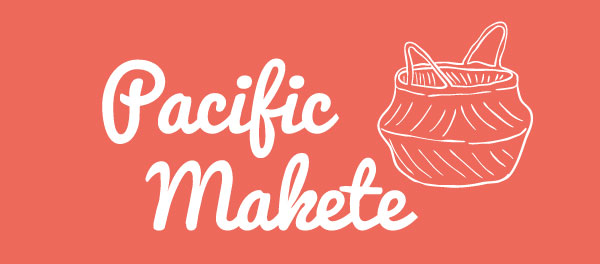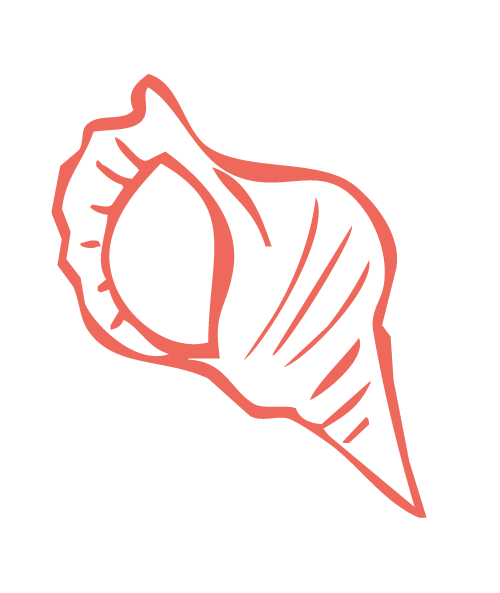Apiame Cegumalua: Food technologist and business mentor

Personal hygiene and cleanliness of work spaces and transport are some of the key things food expert Apisame Cegumalua emphasises in her training of micro and small entrepreneurs. She also focuses on post-harvest handling of vegetables and fruits when working with businesswomen.
Apiame Cegumalua is an expert in food conservation and safety and a businesswoman running her own consultancy company. She is also a trainer for South Pacific Business Development’s Bloom program, a business accelerator program for micro-entrepreneurs.
Cegumalua started her career as a livestock officer, then studied food technology in Australia, funding her studies by working on farms there. She worked in management roles in the dairy industry, and in ginger and food processing before stints with the University of the South Pacific and Pacific Community (then the South Pacific Commission).
Bula vinaka Api. Please tell us a little about your family.
AC: My father was a farmer. He grew sugar cane and he was also a sirdar (managing cane cutting gangs). The one thing that he taught me at a very young age is time utilisation. And clean, clean, clean. He was very particular about cleanliness. He taught us, wake up early in the morning, do your work until the sun is up and then go back home.
My mother was a nurse at the hospital and continued that until my two big sisters were born. Then she stayed home [although] she was a midwife and people used to come and knock on the door in the middle of the night. That’s when we knew a baby was coming. And they did farming. They farmed all sorts of crops, so we always had surplus of food.
Now you work as a consultant on food safety.
Api Cegumalua: I started this company when I retired in 2016. I was just doing nothing for six months. I really wanted to take a rest, because I’ve been working 46 years. [Then] I said, okay now, somebody has to pay the bill at the end of the month and my children really encouraged me. So I established what is called Api’s Food Consultancy. I am also Project Manager with HACCP Australia Fiji, which works with food industry SMEs on food safety systems, training, manuals and certification.
I am a food technologist and a food safety specialist. I help small to medium enterprises to establish their processing systems. I do product development, and [help with the] choice of equipment.
I do a lot of training with women, with village communities, and small business enterprises. We start with a conversation, “what have you got in your garden? You’ve got pawpaw at the back, you’ve got sugar cane. Whatever you have, you start with that.”
And then from there, I teach them how to develop their own product. Once they master that, then I start to talk about packaging, shelf life, costing and all those things, so I do the whole works. And if they want a business plan, to do their bank loans, I help them with that as well.
Your experience and the support you offer is comprehensive. Can you give us an example of a particular community or women’s group that you’ve worked with where you have felt really proud of the results?
AC: Yes, there are so many. I set up a pandanus factory in Kiribati to develop pandanus juice and then did the same thing in Marshall Islands. I’ve trained on cassava flour processing in Palau, taro flour in Kosrae (FSM), fish jerky in Majuro. And I did some work in Tonga, Vanuatu. I’ve worked on breadfruit flour, noni jam, banana and breadfruit chips and many other products.
My most recent one was in Navotua in the Yasawa Islands of Fiji. That was for resilient kind of crops. The only thing that they had was breadfruit. And what else did they have? Coconut. They had bananas. So we developed breadfruit chips, banana chips, and virgin coconut oil. And I showed them how to do soap, and how to extract fragrance from flowers so they can use that for their oil and soaps.
I trained them to develop an assimilated cooler using sand to store fresh vegetables because there was no electricity in the village. We were amazed at the coolness of vegetables which stayed fresh for almost a week.
The same in Natutu Ba ,where I also showed them how to use coconut basket as cooler bins for storing fresh fish while fishing out at sea. The men were happy to see that the fish stayed chilled overnight. Those were both WWF projects.
How did you get involved with SPBD?
AC: We were trying to promote food safety and certification through HACCP and met with the SPBD about how can we get these women to be certified (food producers). We’re still talking about that, but at the moment they are very very small producers [so we realised they needed more support on] personal hygiene, food hygiene, food preparation and all of these sorts of things. When SPBD asked me to come and do that, I was really happy.
What were the main things that you needed to concentrate on, when you were working with them?
AC: The first thing I normally try to do is look at their setup. I sit with them and I really want to know how they prepare the food. Where is the water coming from? I look at their kitchen setup, their flooring, their ceiling, the walls, curtains, all those things. And the utensils they use for cooking, whatever they use, or a stove, whether they have a sink in the kitchen. Where is the toilet and bathroom? How far is it from the kitchen? Those little things. So mainly focusing on hygiene, personal hygiene. I look at that and I put my recommendations.
And then I do training. I emphasise personal hygiene, because if they are to be preparing food for people, they need to wear very clean clothes. The kitchen has to be clean. And the food placement, where is it to be stored? This must be sealed and clean.
If they are bringing their food from the village or where they live, I emphasise that transportation must be clean. The boot must be clean and the packaging.
Another thing is post-harvest handling of vegetables and fruits. They must be handled like a baby. When you’re handling produce, vegetables, fruits, or even fish, you handle it like a baby.
Do you also give them advice around marketing or packaging?
AC: One thing I emphasise is, how are you pricing this? Sometimes they price without considering the cost of their food preparation, what is the cost of the food they produce? You have to pay yourself. If your husband or children are helping, you need to cost that too, the cost of electricity, cost of your equipment that you use, the cost of the kitchen, the maintenance of the kitchen.
What things consistently come up as challenges for the women you’ve worked with?
AC: For one I think it was the distance and transportation. She used to wake up very early and do all the cooking before she went.
And for another it was safely handling fish. When she was getting fish from her husband, he was fully aware of the ice layer and safety. [But] when she was just buying it from the fisherman, I said, you have to emphasise for the fisherman that they must keep it ice chilled as soon as it comes out of the water, straight into the ice layer, going to the house, right throughout [the process].
There’s obviously been a really big re-emphasis on agriculture at all levels with COVID. How much potential do you see for people to generate income from value added products in that space with people working at the village or micro level?
AC: One thing I used to tell them; you’ve got food all around you. Make use of it. You can’t just keep boiling, boiling, boiling. I train them how to do that, how to make cassava chips, how to make banana chips, breadfruit chips. Not just for their make own use, but they can use it for sale. Just to earn some money as revenue. Then we went into the cassava flour, and other flours.
[But] It should be coordinated better. A lot of people are asking to come and do their flour, cassava and coconut flour, but if you just do a small amount, to be able to get into the market [is hard]. There’s a whole lot of training to be done.
There’s some interested in coconut flour. Either you go for this market or you work with others, you incorporate it with cassava flour, coconut flour incorporated with cassava flour, incorporated with wheat flour. You incorporate it, because a small amount will be fine.
Finally Api, what do you like about running your own business after so many other experiences?
AC: I’m my own boss. I can please myself!


